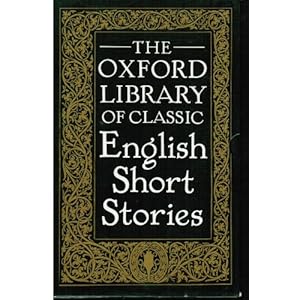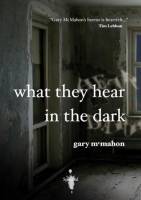Nadifa Mohamed, ‘Summer in the City’ (2010)
Laura Dockrill, ‘Topple’ (2010)
Elizabeth Jenner, ‘It Snows They Say on the Sea’ (2010)
It seems there is something of a trend at the moment for publishing individual short stories. To name two publishers doing so, I’ve already come across Nightjar Press and Spectral Press – and now Clare Hey has launched Shortfire Press, which is specialising in electronic-only editions of stories. Shortfire has launched with three titles, and it is a very strong selection.
***
Nadifa Mohamed arrived on the literary scene last year with Black Mamba Boy; I liked that novel (albeit with a few reservations), and I like this story even more. The events of ‘Summer in the City’ take place in London over the course of a few hours, shortly before the birthday of Mohamed’s narrator, Hodan Ismail. Hodan has asked for a bike, and that’s what she’ll get – but not, as she discovers, the one she wanted. That scene, in the middle of the story, is nicely handled, as Hodan tries to reconcile her disappointment at seeing the rusty ‘old woman’s bike’ her father has bought from a neighbour with the feeling that she really ought to be grateful for a gift that her father would hardly be likely to have received as a child, and certainly wouldn’t have grumbled about if he had.
Apart from one or two points in the opening descriptive passage that don’t quite work, the rest of the story is similarly fine. I particularly like Mohamed’s knack for bringing characters to life in a couple of sentences. We meet some characters only in passing, maybe through only a snatched conversation, yet it’s still possible for us to create a vivid picture of them and imagine what their stories might be. The author also has a very good control of mood, as the tale shifts from a light-hearted tone to something more serious. I look forward to Mohamed’s next novel with even greater anticipation than previously.
***
‘Topple’ is the first piece by Laura Dockrill that I’ve read, but it will not be the last. This story documents brilliantly the evolution of the relationship between the narrator and the object of her attention (which is sometimes affectionate, other times not). The tale begins at a swimming pool when both are aged eight, and the girl has the first stirrings of a feeling for which she may not yet even have the concepts (‘I hope I don’t miss you leaving, little red-eyes bellyflopper. Even though boys blatantly aren’t my thing’).
So the story moves forward through the years, never ringing a false note. Now the girl and boy are friends; now they aren’t. He has a girlfriend; it matters; it doesn’t. Growing up. Birthday parties (will he come? does she want him to?). Clubs (will he be there? will he be alone? does he even remember her?). Drinking. Jobs. On. Off. An air of uncertainty (around the relationship, yes, but the girl is also uncertain about herself, to an extent, as she grows up) remains throughout. ‘Topple’ is an incisive contemporary take on will-they/won’t-they – and you’ll have to read it for yourself to find out if they will.
***
The third Shortfire launch story is by a new writer, Elizabeth Jenner. ’It Snows They Say on the Sea’ is a short but effective character study. A couple look back on a week when inclement weather and shift patterns kept them from seeing each other, despite their living under the same roof. They communicated largely through notes left while the other was sleeping. Now (the beginning says), they resolve not to let it happen again: ‘They will buy highlighter pens, make charts, tack planners to the fridge with plastic vegetable magnets.’ But that sounds to me more like a good intention than a serious plan; perhaps, then, the couple can laugh at that week from this distance.
One of them can, anyway. Jenner reveals a fracture in the relationship that has the potential to grow into a deeper division: the woman seems to have shaken off that week, but the man still dwells on it. In carefully detailed prose, we see the myriad little ways he was affected by her absence (or, at times, her proximity), and what the result has been. This story is a great start for Jenner, and – along with the other two pieces here – a superb start for Shortfire Press.
Like this:
Like Loading...

 The first of our new
The first of our new  Birds appear again, though in a rather different context, in Nightjar’s other new chapbook.
Birds appear again, though in a rather different context, in Nightjar’s other new chapbook. 
Recent Comments